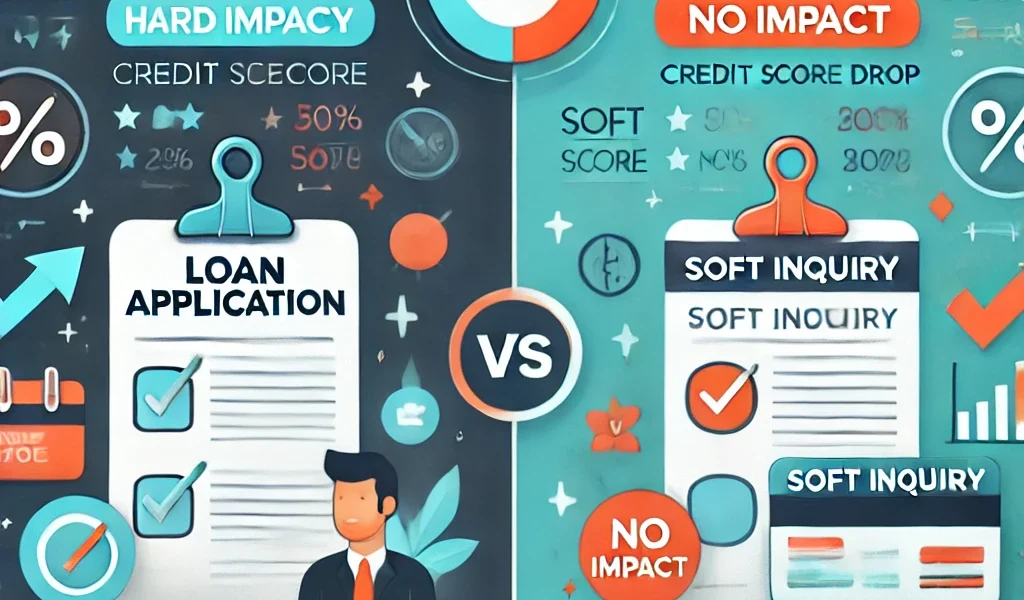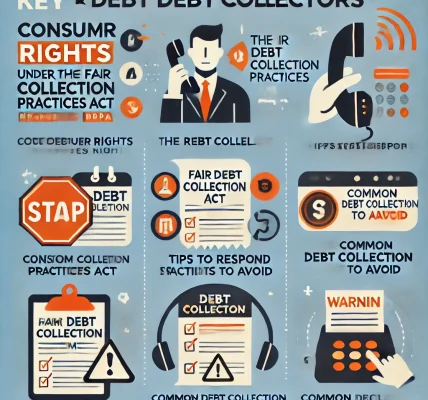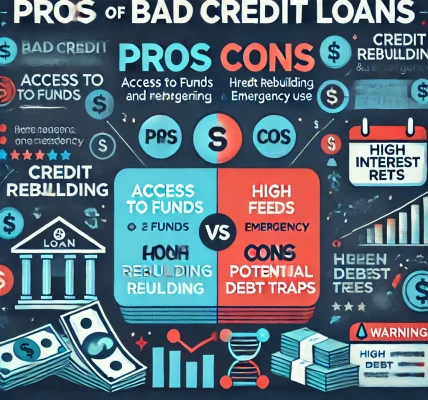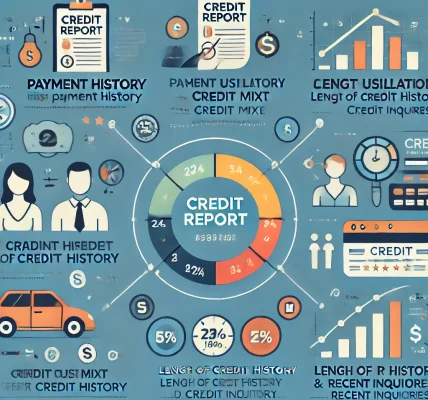Your credit score is one of the most important financial metrics that lenders, landlords, and even employers consider when assessing your financial reliability. One key factor that influences your credit score is credit inquiries. Understanding the difference between hard and soft credit inquiries can help you manage your credit effectively and avoid unnecessary drops in your credit score.
What Are Credit Inquiries?
A credit inquiry occurs when a third party, such as a lender, credit card issuer, employer, or landlord, requests access to your credit report. These inquiries help them assess your financial behavior and creditworthiness.
Credit inquiries are categorized into two types:
- Hard inquiries (Hard Pulls)
- Soft inquiries (Soft Pulls)
While both types of inquiries appear on your credit report, they have different impacts on your credit score.
Hard Credit Inquiries (Hard Pulls)
What is a Hard Inquiry?
A hard inquiry, also known as a hard pull, happens when a lender or creditor reviews your credit report as part of a loan or credit application. Hard inquiries indicate that you are actively seeking credit, and multiple hard inquiries within a short period can signal risk to lenders.
When Do Hard Inquiries Occur?
Hard inquiries usually happen when you apply for:
- Credit cards
- Mortgages
- Auto loans
- Personal loans
- Student loans
- Business loans
- Some rental applications
How Do Hard Inquiries Affect Your Credit Score?
- Hard inquiries can lower your credit score by a few points, typically between 5-10 points.
- They remain on your credit report for up to two years, but their impact on your score usually fades after a few months.
- Multiple inquiries within a short period can significantly impact your score, especially if you have a short credit history or a low credit score.
How to Minimize the Impact of Hard Inquiries?
- Rate shopping wisely: Credit scoring models like FICO and VantageScore consider multiple inquiries for auto loans, mortgages, and student loans within a short timeframe (14-45 days) as a single inquiry.
- Apply for credit only when necessary: Avoid applying for multiple credit cards or loans in a short period.
- Check eligibility before applying: Many lenders offer a prequalification process using a soft inquiry before a hard pull is required.
Soft Credit Inquiries (Soft Pulls)
What is a Soft Inquiry?
A soft inquiry, also known as a soft pull, occurs when your credit report is checked but not for lending decisions. Soft inquiries do not affect your credit score.
When Do Soft Inquiries Occur?
Soft inquiries usually happen when:
- You check your own credit score.
- A credit card issuer pre-approves you for an offer.
- Employers conduct background checks.
- Landlords perform routine checks.
- Insurance companies assess your credit-based insurance score.
How Do Soft Inquiries Affect Your Credit Score?
- Soft inquiries do not lower your credit score.
- They are recorded on your credit report but are only visible to you, not to lenders.
Key Differences Between Hard and Soft Inquiries
| Feature | Hard Inquiry | Soft Inquiry |
|---|---|---|
| Impact on Credit Score | Can lower your score by 5-10 points | No impact |
| Visible to Lenders | Yes | No |
| Duration on Credit Report | Up to 2 years | Varies (not visible to lenders) |
| Purpose | Loan or credit applications | Pre-approvals, personal credit checks, background checks |
| Examples | Credit card application, mortgage, auto loan | Checking your own credit, employer screening |
How to Monitor and Manage Credit Inquiries
1. Check Your Credit Report Regularly
- You are entitled to a free credit report from each of the three major credit bureaus (Experian, Equifax, and TransUnion) once a year via AnnualCreditReport.com.
- Monitor your report for unauthorized hard inquiries, as they could indicate identity theft.
2. Use Credit Monitoring Services
- Services like Credit Karma, Experian, and MyFICO provide real-time alerts for credit inquiries.
- Some banks and credit card issuers offer free credit monitoring.
3. Be Selective About Credit Applications
- Only apply for credit when necessary.
- Use prequalification tools to check eligibility without a hard inquiry.
4. Dispute Unauthorized Hard Inquiries
- If you find a hard inquiry you did not authorize, dispute it with the credit bureaus.
- Contact the creditor and request removal if it was done in error.
Common Myths About Credit Inquiries
Myth 1: Checking Your Own Credit Score Lowers It
Reality: Checking your credit score is a soft inquiry and has no impact on your score.
Myth 2: All Credit Inquiries Are Bad
Reality: Soft inquiries are harmless, and even hard inquiries only have a minor, temporary effect.
Myth 3: Too Many Hard Inquiries Will Ruin Your Credit
Reality: While multiple hard inquiries in a short time can impact your score, one or two inquiries will not significantly damage it.
Final Thoughts
Understanding credit inquiries is essential for maintaining a healthy credit score. While hard inquiries can impact your credit, they are only a small part of the bigger credit picture. By applying for credit wisely, monitoring your credit report, and using prequalification tools, you can protect your credit score while still accessing financial opportunities when needed.
Stay informed, manage your inquiries wisely, and maintain a strong credit profile for better financial opportunities!




